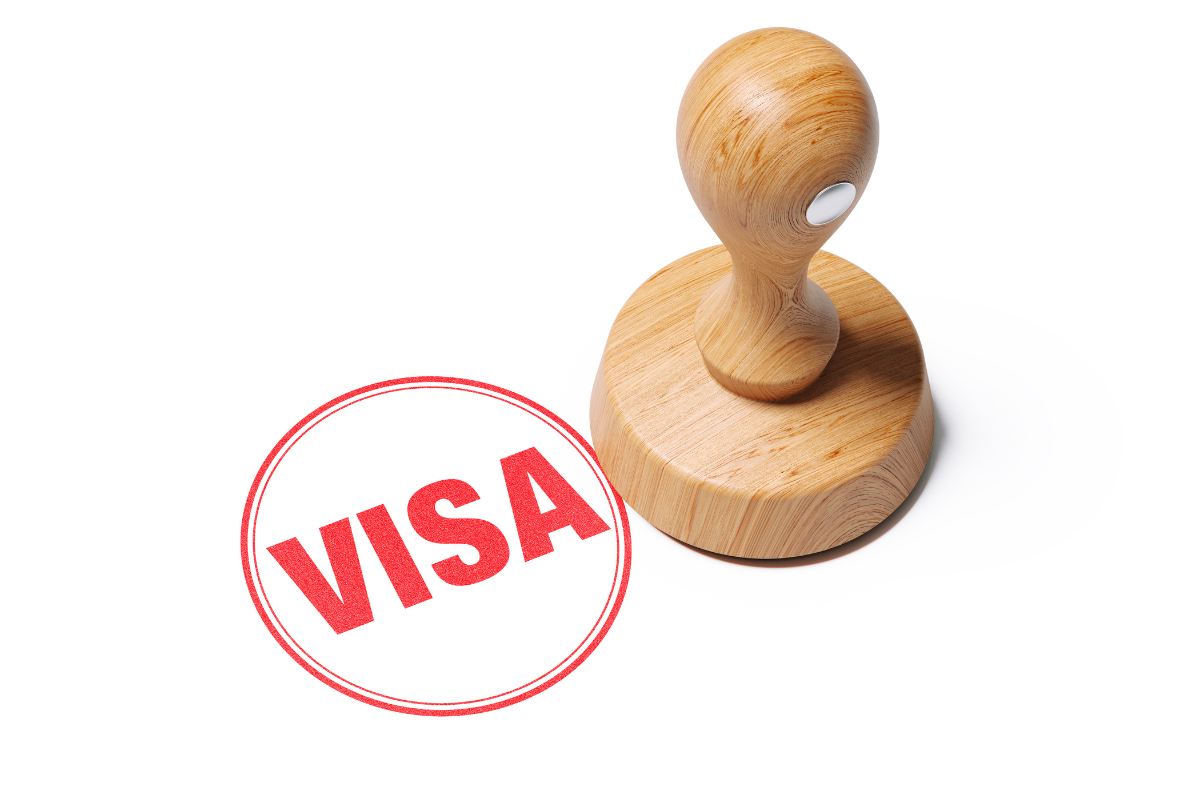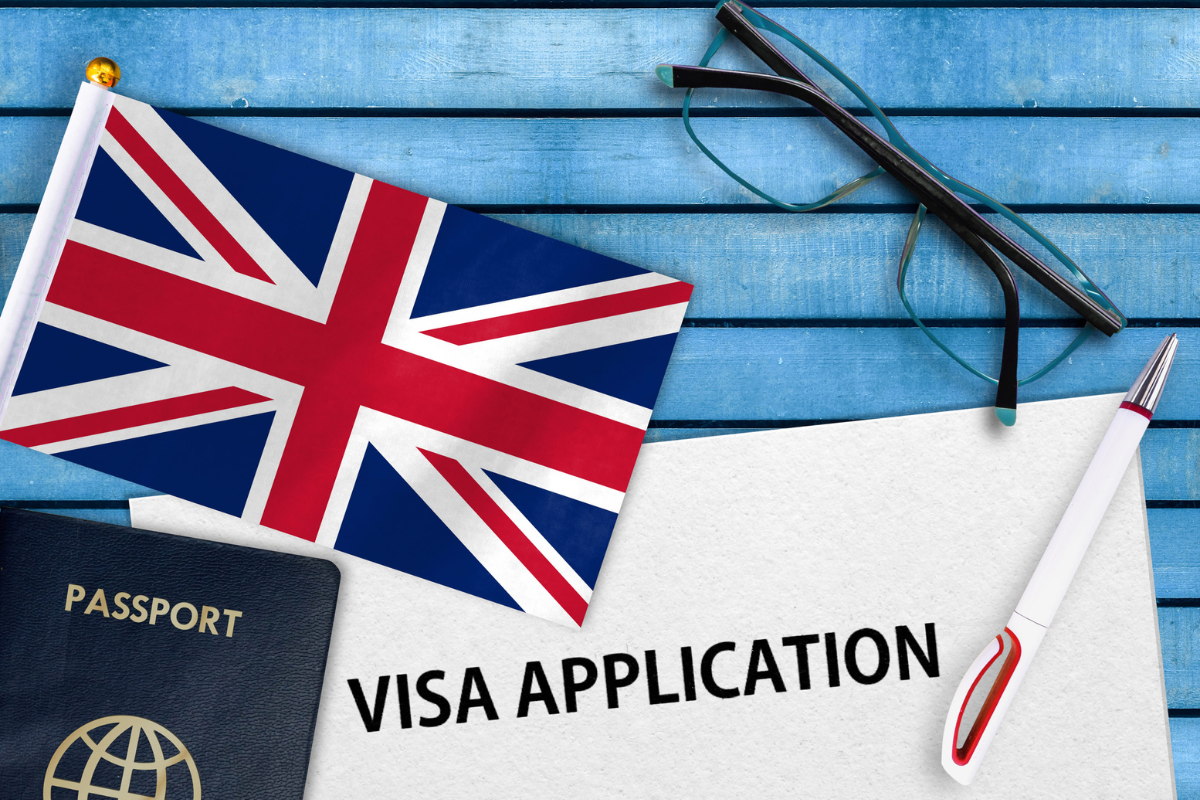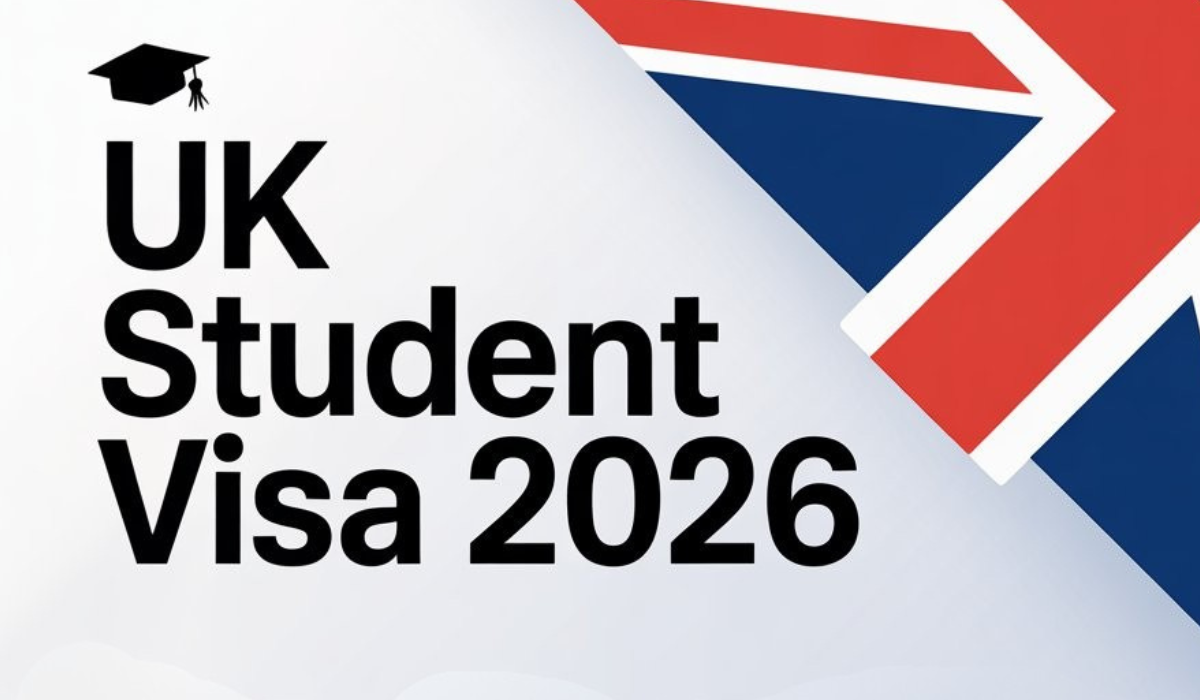The United Kingdom has long been a top destination for international students, attracting over 600,000 students from around the world each year.
Renowned for its prestigious universities, rich cultural heritage, and innovative research opportunities, the UK offers a unique environment that combines world-class education with an immersive cultural experience.
Cities like London, Edinburgh, and Manchester are not just educational hubs but also vibrant centers for arts, technology, and business, making the UK a highly appealing choice for students seeking both academic and personal growth.
However, before embarking on this exciting journey, it’s crucial to understand the UK Student Visa process.
Navigating visa requirements correctly ensures a smooth transition to the UK, prevents delays in enrollment, and allows students to fully focus on their studies. With the visa serving as the gateway to study and work opportunities during your academic tenure, thorough preparation is essential.
In recent years, the UK has introduced several changes in visa policies, including modifications to post-study work options, financial requirements, and processing timelines.
For instance, the Graduate Route now allows eligible international students to stay and work in the UK for up to two years after completing their degree. Understanding these changes and their implications is vital to ensure compliance and make informed decisions about your academic journey.
Genius Study Abroad can guide students through these updates, offering step-by-step support to simplify the UK Student Visa process and help turn the dream of studying in the UK into reality.
Read More : Cost of Studying in UK 2026: Tuition Fees & Living Expenses
Understanding the UK Student Visa
A UK Student Visa is an official document that allows international students to live, study, and, in some cases, work in the United Kingdom for the duration of their academic program.
Its primary purpose is to ensure that students meet the UK’s entry requirements, maintain legal status while studying, and contribute positively to the academic and cultural environment of the country.
Eligibility Criteria for a UK Student Visa generally include:
- Acceptance from a recognized UK educational institution: You must have a confirmed offer from a licensed Tier 4 sponsor or a recognized university.
- Proof of financial capability: Demonstrating that you can cover tuition fees and living expenses, typically through bank statements or scholarship letters.
- English language proficiency: Depending on the course, proof via IELTS, TOEFL, or other accepted tests may be required.
- Age requirement: Generally, applicants must be 16 or older for the standard Student Visa.
Types of UK Student Visas:
- Child Student Visa (Ages 4–17)
Designed for younger students attending independent schools in the UK. Applicants must have a confirmed place in an approved school, sufficient funds for living costs, and parental consent. - Student Visa (Ages 16+)
The standard visa for most international students pursuing higher education, such as undergraduate, postgraduate, or professional courses. This visa allows for work alongside studies (up to 20 hours per week during term time for degree courses) and access to certain post-study work opportunities through the Graduate Route. - Short-Term Study Visa
Ideal for students attending short courses, such as English language programs or one-off academic courses lasting 6 to 11 months. This visa is suitable for those seeking temporary academic exposure without committing to long-term study.
Understanding these categories is crucial for selecting the right visa type, as it determines eligibility, duration of stay, and post-study options. Proper guidance ensures that students meet all requirements and avoid delays or rejections in their UK Student Visa application process.
Genius Study Abroad can help students identify the correct visa type, prepare documentation, and increase the chances of a smooth application experience.
Read More : UK Post-Study Work Visa 2026: PSW Updates for International Students
Recent Changes in UK Student Visa Policies (2025)

When you’re planning to apply through Genius Study Abroad for a UK Student Visa, it’s vital to stay up to date. Here are the key policy changes coming into play in 2025 and beyond.
Increased Visa Fees
The UK government has raised application fees across many visa routes, including study visas. From 9 April 2025, the cost for a standard Student Visa (for main applicants and dependants) increased from £490 to £524. Royal Vision education+4GOV.UK+4Welcome to Primus Solicitors+4 Similarly, the Child Student Visa fee also increased to £524.
Welcome to Primus Solicitors+1 For a Short-Term Study Visa (e.g., English language course of 6–11 months), the fee rose from £200 to £214. Ahead Achiever+1
For Indian students planning ahead, this means factoring in the higher cost when budgeting — including tuition, living costs, and now the elevated visa fee under your UK Student Visa plan with Genius Study Abroad.
Stricter English Language Requirements
While this change is more commonly cited for work routes, it signals a broader tightening of standards which could affect the UK Student Visa landscape.
From 8 January 2026, applicants under some routes (like the Skilled Worker, High Potential Individual and Scale-Up) will need to demonstrate English proficiency at level B2 (CEFR) rather than B1.
Anyvisa+3Gulbenkian Andonian Solicitors+3Cartwright King+3 Although the rule is not yet explicitly legislated for all student routes, the shift indicates that students should expect higher language demands ahead.
Preparing early for a stronger English proficiency will help ensure your UK Student Visa application sails smoothly.
Enhanced Monitoring and Enforcement
The UK government is ramping up oversight to prevent visa overstays and misuse. For instance, recent announcements show that large numbers of international students and their dependants are now being targeted for contact and compliance checks.
The Guardian As part of your UK Student Visa strategy with Genius Study Abroad, this means ensuring all documentation is accurate, your study plans are genuine and you maintain legal status at every stage to avoid complications.
By staying aware of these changes — higher fees, stricter English standards, stronger monitoring — you’re better positioned to plan ahead.
With the backing of Genius Study Abroad, you can navigate the UK Student Visa process smartly, avoiding surprises and aligning your timeline and budget.
Academic Requirements
The first and most crucial step is receiving an offer of admission from a recognized UK educational institution that holds a valid sponsor license.
This could be a university, college, or private education provider approved by the UK Home Office. Upon acceptance, the institution issues a Confirmation of Acceptance for Studies (CAS), a unique reference number needed to apply for your UK Student Visa.
For example, universities such as the University of Manchester, King’s College London, and the University of Glasgow are among the most popular choices for international students.
According to UCAS 2025 reports, international enrollment in UK universities has risen by nearly 12% in the past two years, highlighting the country’s continued appeal.
Financial Requirements
To qualify for a UK Student Visa, applicants must prove they can financially support themselves throughout their stay. This includes covering tuition fees and living expenses for at least nine months.
- Tuition fees vary widely—from around £11,000 to £38,000 per year, depending on the program and institution.
- Living costs are estimated at £1,334 per month if studying in London and £1,023 per month for other parts of the UK (as per the 2025 Home Office guidelines).
Financial proof can be shown through bank statements, fixed deposits, loan approval letters, or scholarship confirmation. For instance, students funded by Chevening or Commonwealth scholarships can directly submit their award letters as proof.
English Language Proficiency
Since all courses are taught in English, students must demonstrate adequate proficiency. The UK accepts several standardized English tests, including:
- IELTS Academic – Minimum overall score of 6.0–6.5 (depending on course level).
- TOEFL iBT – Generally, a minimum of 80–90.
- PTE Academic – Score of 58–61 or higher.
Some universities may also conduct internal English assessments for conditional offers. Meeting the English proficiency requirement ensures smoother visa processing and academic success once you arrive in the UK.
Parental Consent (for applicants under 18 years)
Applicants aged 16 or 17 must have written consent from both parents or legal guardians. This document should confirm approval of the study plan, accommodation arrangements, and travel. It is mandatory for obtaining the UK Student Visa under the Child Student Visa route.
Meeting all these eligibility conditions forms the foundation of a successful visa application. Genius Study Abroad assists students in verifying documents, preparing financial proofs, and ensuring all eligibility criteria are met before submission, making your UK Student Visa journey smooth and stress-free.
Read More : Study in UK 2026: Best Universities, Courses & Fees
Step-by-Step Application Process for the UK Student Visa
Applying for a UK Student Visa may seem complex, but following a structured process ensures a smooth experience. Below is a clear, step-by-step guide designed to help international students — especially those applying through Genius Study Abroad — understand every stage of the application journey.
1. Secure an Unconditional Offer
Before applying for your UK Student Visa, you must first receive an unconditional offer from a recognized UK institution. Once you accept the offer, the university will issue a Confirmation of Acceptance for Studies (CAS) — a unique 14-digit reference number required for the visa application.
The CAS includes details about your course, tuition fees, and sponsorship, and it confirms that your chosen institution is authorized by the UK Home Office to sponsor students. Without a CAS, your visa application cannot proceed.
Example: A student accepted into the University of Leeds for a master’s in Data Science will receive a CAS after paying a deposit or meeting the conditions of admission.
2. Gather Required Documents
Collecting accurate and complete documentation is crucial for the UK Student Visa process. Missing or incorrect paperwork is one of the leading causes of visa delays or rejections.
You’ll typically need:
- A valid passport (with at least one blank page).
- CAS number from your university.
- Proof of financial support, such as bank statements or loan approval letters.
- Academic transcripts and certificates from previous studies.
- English language test results (IELTS, TOEFL, or PTE).
- Parental consent letter if under 18.
- Tuberculosis (TB) test results (if required for your country).
3. Complete the Online Application
Visit the UK Visas and Immigration (UKVI) portal and fill out the Student Visa (Tier 4) application form online. Ensure all information matches your documents exactly to avoid discrepancies.
You’ll need to upload scanned copies of your documents, select your nearest visa application center, and confirm your appointment date. Genius Study Abroad can assist in reviewing your application to ensure it meets UKVI standards.
4. Pay the Visa Fee and Immigration Health Surcharge (IHS)
After submitting the online form, you’ll need to pay two mandatory charges:
- Visa Fee: As of April 2025, the standard application fee is £524 for each applicant.
- Immigration Health Surcharge (IHS): Currently £776 per year of study, which grants you access to the UK’s National Health Service (NHS).
These payments are made online through the UKVI portal before you finalize your application.
5. Attend a Biometric Appointment
Once your application and payments are complete, schedule a biometric appointment at your nearest VFS Global or TLScontact center.
At the appointment, you’ll:
- Submit your fingerprints and photograph.
- Provide original supporting documents if requested.
- Possibly attend a short credibility interview, where you’ll answer questions about your study plans and finances.
Most appointments take 15–30 minutes, and students are advised to arrive early with all documents in order.
6. Await a Decision
After completing biometrics, your UK Student Visa application enters the processing stage.
- Standard processing time: Around 3 weeks from the date of your biometric appointment.
- Priority processing (optional): Decisions within 5 working days for an additional fee.
You can track your visa status via email or text updates from UKVI or through your online account. Once approved, you’ll receive a visa vignette in your passport, valid for 90 days to travel to the UK. Upon arrival, you’ll collect your Biometric Residence Permit (BRP) from your university or designated post office.
Applying for a UK Student Visa can be straightforward with proper planning. With Genius Study Abroad, students receive personalized assistance at every stage — from CAS verification and financial documentation to visa filing and post-arrival guidance — ensuring a stress-free start to their UK education journey.
7. Required Documents Checklist for the UK Student Visa
When applying for a UK Student Visa, submitting the correct and complete set of documents is essential for a successful outcome. The UK Visas and Immigration (UKVI) department is extremely strict about documentation accuracy — even a small error or missing page can lead to delays or rejections. Below is a comprehensive checklist along with practical tips to ensure your application is flawless.
Read More : UK Intakes 2026 Explained: January, May & September Admissions
Detailed List of Required Documents

- Valid Passport
Your passport must be valid for the entire duration of your stay in the UK, with at least one blank page for the visa vignette. - Confirmation of Acceptance for Studies (CAS)
Issued by your university or college after you’ve accepted an unconditional offer. The CAS includes your personal details, course information, tuition fee confirmation, and a unique reference number — which is mandatory for your UK Student Visa application. - Proof of Financial Capability
You must show evidence that you can pay for your course and living expenses:
- Tuition fees (as stated in your CAS letter).
- Maintenance funds — at least £1,334 per month if studying in London or £1,023 per month outside London, for up to 9 months.
Acceptable proofs include bank statements, loan letters, or scholarship confirmation (for example, Chevening or Commonwealth awards).
- Academic Transcripts and Certificates
Submit all academic qualifications used to gain admission to your course. This could include school certificates, undergraduate degrees, or postgraduate diplomas. - English Language Proficiency Test Results
Provide proof of your English proficiency via accepted tests such as:
- IELTS Academic (minimum overall 6.0–6.5)
- TOEFL iBT (minimum 80–90)
- PTE Academic (minimum 58–61)
Some universities may waive this if you’ve studied previously in an English-speaking country.
- Tuberculosis (TB) Test Certificate
Required if you’ve lived in a country listed by the UK government (including India) for more than six months. The test must be done at a UK-approved clinic and is valid for six months. - Parental Consent Letter (if under 18)
Students aged 16 or 17 must submit a signed letter of consent from both parents or guardians, confirming support for study, travel, and accommodation arrangements.
Read More : Top Scholarships in UK for Indian Students 2026
Common Mistakes to Avoid When Applying for a UK Student Visa

Even well-prepared students can face setbacks in the UK Student Visa process due to small but costly mistakes. Understanding and avoiding these errors can save you time, money, and unnecessary stress. Here are some of the most common pitfalls — and how Genius Study Abroad helps students steer clear of them.
1. Incomplete or Incorrect Documentation
One of the most frequent reasons for UK Student Visa delays or refusals is missing or inaccurate paperwork. Each document must match your application details exactly — including name spelling, date of birth, and CAS information.
Common errors include:
- Uploading blurred or incomplete scans of key documents.
- Mismatched information between academic records and CAS details.
- Missing translations for non-English documents.
Double-check every document before submission. Genius Study Abroad reviews your full file for accuracy and ensures your application aligns with the latest UK Visas and Immigration (UKVI) standards.
2. Failure to Meet Financial Requirements
The UK Home Office has strict financial criteria to ensure that students can afford tuition and living costs during their studies. Failure to provide clear proof of funds — or using the wrong format — often results in rejection.
Example: Many students mistakenly submit bank statements that don’t cover the required 28 consecutive days before application submission, or they show funds in a non-permitted account type.
Quick facts:
- Minimum funds: £1,334/month (for up to 9 months in London) or £1,023/month outside London, plus tuition fees.
- The bank account must be in the applicant’s or parent’s name, and statements must be recent.
Ensure all financial documents are original, clear, and meet the 28-day rule. Genius Study Abroad provides a pre-submission checklist to verify every financial proof meets UKVI standards.
3. Not Adhering to Visa Conditions Post-Arrival
Your responsibilities don’t end once you receive your UK Student Visa. The UK government monitors compliance to ensure visas aren’t misused. Violating visa conditions can lead to cancellation or deportation.
Key rules to follow:
- Work limits: Maximum 20 hours per week during term time for degree-level students.
- Attendance: Regular attendance at your institution is mandatory; poor attendance can trigger sponsor reporting.
- Stay duration: Leave the UK before your visa expires, unless you’ve applied for a new route (e.g., Graduate Visa).
Stay informed about your visa rights and duties. Genius Study Abroad continues to guide students even after arrival, ensuring they comply with all UK visa regulations.
Avoiding these common mistakes ensures a smooth, stress-free UK Student Visa experience. With Genius Study Abroad, you gain expert support from documentation to post-arrival guidance — helping you focus on what truly matters: your education and success in the UK
Read More : UK Student Visa fee 2026: Latest Rules, Requirements & Application Guide
Working While Studying in the UK
One of the major advantages of the UK Student Visa is that it allows international students to work while pursuing their studies — helping them gain valuable experience, build financial independence, and enhance employability. With clear regulations set by the UK Home Office, understanding your work rights ensures you make the most of your time in the UK responsibly and legally.
Work Rights on a Student Visa
Students holding a UK Student Visa for degree-level or higher studies at a licensed university are permitted to work up to 20 hours per week during term time and full-time during holidays or semester breaks.
Key details to remember:
- The 20-hour limit includes all types of paid and unpaid work.
- Students enrolled in below-degree level courses can work a maximum of 10 hours per week.
- You cannot work as a professional sportsperson, coach, or entertainer while on this visa.
According to UKCISA (UK Council for International Student Affairs), nearly 57% of international students in the UK take up part-time jobs during their studies — from hospitality and retail roles to tutoring or university assistance positions.
Always check your visa vignette or Biometric Residence Permit (BRP) for specific work conditions. Genius Study Abroad advises students to follow these rules strictly to avoid visa violations.
Types of Permitted Employment
Working part-time helps students not only earn extra income but also develop professional skills and build a network in the UK job market. Common types of permitted employment include:
- On-campus jobs: Positions in university libraries, cafés, or administrative offices.
- Internships and placements: Many degree programs, especially at postgraduate level, offer work placements that count as part of your course.
- Off-campus work: Jobs in restaurants, retail, or customer service sectors.
Example: A student at the University of Birmingham might work 15 hours a week as a teaching assistant during term time and take a full-time summer internship at a tech firm in London.
Genius Study Abroad helps students explore on-campus and internship opportunities that align with visa regulations and their academic goals.
Post-Graduation Work Opportunities
After completing your studies, the Graduate Route Visa offers a pathway to stay and work in the UK. This route, introduced in 2021, allows graduates to gain international experience and explore career opportunities across the UK.
Highlights of the Graduate Route:
- Stay in the UK for 2 years after completing an eligible degree (3 years for PhD graduates).
- No job offer required to apply.
- Work at any skill level and switch to a Skilled Worker Visa later if employed by a licensed sponsor.
As of 2025, over 174,000 international students have successfully transitioned to the Graduate Route — a clear sign of the UK’s commitment to retaining global talent.
Working while studying provides financial relief, professional exposure, and a deeper cultural experience. With Genius Study Abroad, students receive expert guidance on part-time work options, internship placements, and post-graduation visa routes — ensuring you make the most of your UK Student Visa both during and after your studies.
Read More : 1-Year Master in UK for International Students 2025
Tips for a Successful UK Student Visa Application

Applying for a UK Student Visa can feel overwhelming, but careful planning and attention to detail can make the process smooth and stress-free.
Every year, thousands of students face delays or rejections simply due to timing issues, incomplete documents, or unclear financial proofs. Below are key tips to help you strengthen your application and increase your chances of approval — with expert guidance from Genius Study Abroad at every step.
Start Early
Early preparation is the foundation of a successful UK Student Visa application. Begin the process at least 3–6 months before your course start date to allow time for gathering documents, securing your CAS, and arranging finances.
Starting early also helps you handle unexpected challenges such as delayed transcripts, bank verification, or test score updates. According to UK Visas and Immigration (UKVI), the average processing time is about 3 weeks, but students applying late often face longer wait times due to seasonal surges.
Create a detailed checklist and set reminders for each stage — from submitting your CAS details to booking your biometric appointment. Genius Study Abroad helps students design a personalized application timeline to stay ahead of deadlines.
Ensure Financial Transparency
Financial proof is one of the most crucial parts of your UK Student Visa application. The UK Home Office requires clear, verifiable evidence showing you can pay for tuition and living costs for at least 9 months.
To ensure transparency:
- Keep funds in your account for at least 28 consecutive days before applying.
- Avoid large, unexplained deposits right before submission — they may raise red flags.
- Make sure your documents are official, recent, and issued by recognized financial institutions.
Many applicants face refusals because of unclear or inconsistent financial documentation. With Genius Study Abroad, students receive expert help in preparing bank statements, scholarship letters, or education loan proofs that meet UKVI requirements perfectly.
Stay Informed
The UK government frequently updates visa rules, fees, and requirements. Staying informed about the latest changes helps you avoid surprises and ensures your application aligns with the most current regulations.
For example, as of April 2025, visa fees increased to £524, and English language proficiency standards are expected to rise to B2 level from January 2026. Students who stay updated on such policy changes can plan finances and documentation accordingly.
Follow official sources like gov.uk and UKCISA, or rely on expert consultants such as Genius Study Abroad, who continuously monitor policy updates and guide students through every change.
A successful UK Student Visa application comes down to preparation, accuracy, and awareness. By starting early, maintaining financial transparency, and staying informed, you can significantly improve your chances of success — and with Genius Study Abroad, you’ll have a trusted partner ensuring every detail is handled with care and precision.
Read More : Best UK Education Consultants in India – Genius Study Abroad
Conclusion
Securing a UK Student Visa is more than just a procedural step — it’s the beginning of a transformative educational journey. Throughout this guide, we explored every essential aspect of the process — from understanding visa types and eligibility requirements to mastering documentation, financial proof, and post-study opportunities.
Each step you take brings you closer to your dream of studying in one of the world’s most prestigious education destinations. While the process may seem complex, with the right planning and expert guidance, your UK study dreams can become a reality.
At Genius Study Abroad, we’ve helped countless students successfully navigate their UK Student Visa applications with personalized support — from documentation to interview preparation.
Start your UK study journey with confidence.
Reach out to Genius Study Abroad today for expert guidance, one-on-one counselling, and end-to-end visa assistance.
📞 Contact us now 70 335 335 70 and take the first step toward your future in the UK!
Read More : Best Consultancy in India for Abroad Studies | Top Study Abroad Experts 2025
FAQs
- How long does it take to process a UK Student Visa?
Typically, a UK Student Visa application takes around 3 weeks to process from the date of your biometric appointment. However, this timeline can vary depending on your country of residence, time of year, and individual case complexities.
Students are advised to apply at least 6 months before their course start date if applying from outside the UK. Applying early ensures enough time to resolve any document issues or delays.
- Can I extend my Student Visa?
Yes, you can extend your UK Student Visa if you wish to continue your studies in the UK, provided you meet the eligibility criteria. To qualify, you must:
- Hold a valid Student Visa.
- Have a new Confirmation of Acceptance for Studies (CAS) from a licensed sponsor.
- Apply before your current visa expires.
Extensions are often granted for students enrolling in a new course at a higher academic level, such as progressing from a bachelor’s to a master’s degree.
- What happens if my visa application is rejected?
If your UK Student Visa application is refused, don’t panic. The UK Home Office provides a refusal notice explaining the reasons — such as incomplete documentation, insufficient funds, or discrepancies in information. Depending on your situation, you can either:
- Reapply after addressing the stated issues.
Request an administrative review if you believe a mistake was made in assessing your application.
Seeking expert help at this stage can make a major difference — consult Genius Study Abroad for professional visa guidance and reapplication support to strengthen your next submission.



